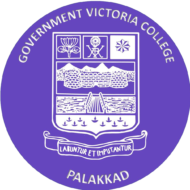Additional Skill Acquisition Programme (ASAP)
Additional Skill Acquisition Programme (ASAP), launched in 2012, is a Joint initiative of General and Higher Education departments of Government of Kerala that focuses on imparting job-readiness skills to students, in addition to their conventional mainstream school and college education, to enhance their employability levels. It aims to create employment opportunities to unemployed youth in Kerala and to enhance the skill sets of the labour force in general, emphasizing industry linkages. Asap integrates and scale up the programmes to impart low-end skills as well as to equip semi-skilled/unskilled workforce in a mission mode institutionalized approach. ASAP targets Plus one- and first-year graduate students from government and aided institutions. Government Victoria College Palakkad has been the Skill Development Centre of the ASAP since 2012.
ASAP Kerala has created a unique demand-based, industry-led skill training ecosystem in the State through its 121 Skill Development Centres connecting Higher Secondary Schools and Arts & Science Colleges, Advanced Skill Development Centres (ASD Cs) in 66 Engineering Colleges and 45 Polytechnics for futuristic skilling, and 16 Community Skill Parks (CSPs) for multi skill training.
ASAP Kerala has 12 NSQF Skill Qualifications registered in the National Qualifications Register (NQR). Preparing youth for a rapidly evolving future through state-of-the-art training programmes in highly demanding areas is the objective of ASAP Kerala. ASAP Kerala has made a positive impact on raising the employability of the State’s manpower.
The Foundation Module of ASAP covers 180 hours at the parent institution with 100 hours for communicative English and 80 hours for IT skill. Besides, a student gets 50 to 200 hours at the nearest skill development centre (SDCs) during weekends and holidays. Compulsory internship spanning 150 hours at nearest Job Training centres and Industries is integral to the programme.
Annual Reports




